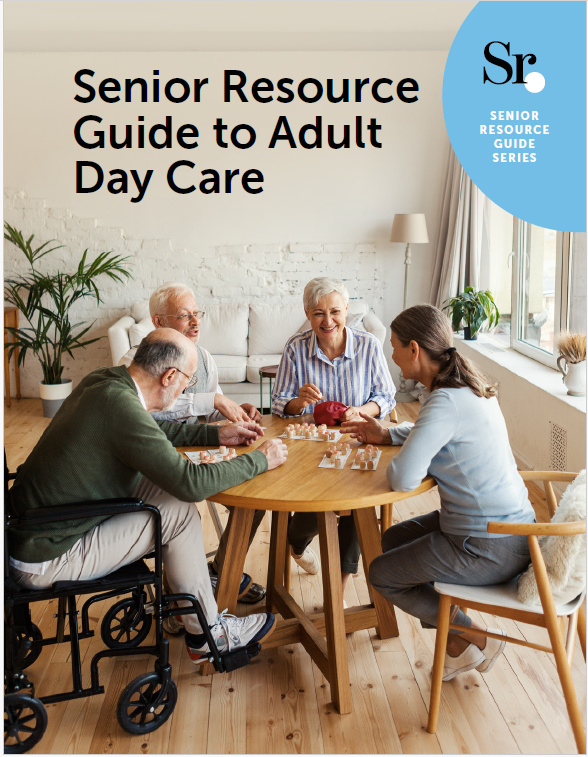What if You Don’t Like Your Provider? Expert Tips from a Hospitalist
In a recent interview with hospitalist Dr. Monique Nugent, she shed light on the often daunting, or even intimidating, experience of hospital stays and shared some valuable insights from her new book, “Prescription for Admission.” In her time with us, Dr. Nugent revealed a real-life perspective on hospital stays, highlighting the importance of understanding and navigating this sometimes challenging process. What do you do if you don’t like the providers seeing you in the hospital? What are the most important things you can do to promote healing and get home faster? Is it possible to have a positive experience when you’re in the hospital for a prolonged amount of time? Dr. Nugent answers these questions and more!
What Do You Do If You Don’t Like the Providers Seeing You in the Hospital?

Dr. Nugent reminds us that hospitals differ from clinics in terms of the number of providers you encounter throughout your stay. Depending on the length of your hospitalization and the location within the hospital, you may interact with multiple physicians. Additionally, specialists often come and go, adding to the dynamic nature of care. Undoubtedly, there will be various personality types among hospital staff and providers. While it’s natural not to get along with everyone, she encourages open communication and respect. Nugent implores, “Don’t let a personality disagreement be the reason that you cut a hospitalization or interaction short.”
While this is sound advice, Nugent also stresses the importance of asking an even more appropriate question: Do you feel safe?
Personality differences and off-interactions can be normal. We’re only human after all. But, if you’re feeling unsafe in any way during your hospital stay. Well, that’s another story.
How Do You Address Concerns with Hospital Staff?

In cases where you feel your safety is compromised, advocating for a change in provider becomes necessary to ensure appropriate care. But, how do you go about making that happen? Here’s what Dr. Nugent says:
1. Address Your Concern or Issue in Real Time
By expressing your concerns immediately, you have the opportunity to clarify misunderstandings and set expectations for future interactions. Whether it’s voicing your discomfort with a certain aspect of care or feeling unheard, addressing these issues in real time allows for open dialogue and the potential for improvement. Waiting, say three days, to address these issues is not as effective. By waiting, the problem may worsen or persist, causing unnecessary stress or discomfort. Not to mention, addressing concerns in the moment ensures that they are fresh in everyone’s minds. Suppose you don’t speak up in a timely manner. In that case, all of the relevant details may be more difficult to recall, ultimately making it harder for you to accurately address the issue with hospital staff and get a desired change to occur.
2. Use the Hospital’s Advocacy Department and Chain of Command
When facing concerns in a healthcare setting, reaching out to patient advocates or similar departments can be beneficial. These advocates act as liaisons between patients and different parts of the hospital, providing guidance and support in navigating the system. “They often know how to reach the higher-ups…the ‘director of such and such,'” says Dr. Nugent. With their knowledge of the hospital’s structure, they can assist you and get you more timely support.
3. Be Clear and Factual
When interacting with hospital staff and liaisons, strive for clarity and factual communication regarding your concerns. While emotions can make this challenging, being clear and factual serves as a catalyst for driving change. Additionally, setting expectations about what you believe is essential in ensuring that your concerns are effectively addressed.
What If You’re Not One to Usually Speak Up?

For introverts, speaking up about a bad hospital experience can be easier said than done. The fear of judgment or confrontation may cause them to hesitate in expressing their concerns. However, addressing your issues is not only important for yourself but also for the improvement of healthcare systems.
“If you think a little bit altruistically, you’re addressing issues because for the next patients who come long – you don’t want someone else having a safety issue. A bad experience…”
Confidentiality may be a concern when speaking out about safety in a hospital setting. But, seeking help from patient advocates or similar resources will probably require disclosing the reasons for dissatisfaction. While this doesn’t exactly ensure confidentiality, it is important to recognize that transparency is necessary to effectively bring about change.
One positive way to confront your concerns while gaining a different perspective on the matter is to enlist the help of a primary care doctor or specialist who you have a close relationship with. Say you’re in the hospital for a planned procedure, recommended by your primary physician. Get on the phone with that doctor and tell them, this is what I’m experiencing. You can ask what’s normal and what’s not. And, whether they recommend your care be handled a certain way. They may shed light on your matter and you could feel better after the conversation. Or, they might even tell you, “Wait a minute, that’s not right, let’s get on top of this.” Bottom line – that family doctor who you’ve been seeing for years can be a resource as well as another advocate for your healthcare.
It can also be helpful to reach out to people within your community. This could be family members, trusted friends, or even spiritual advisors. Their presence and input can bring comfort and an additional voice in advocating for your needs.
Discharged From the Hospital, Sent to Rehab – How Do You Go Home?

Most people would say they can’t wait to get home after a hospitalization, but we know that that’s not always going to be the reality. A lot of times, patients get discharged but then it’s off to a skilled nursing facility (SNF) or a rehab for a bit of time. If you end up in that boat, it’s important that you understand your specific plan and goals for recovery.
Whether you’re staying for wound care or physical rehabilitation, ask about the frequency of treatments or therapy sessions and when assessments will be made to determine if further intervention is needed. Be proactive in participating in your own care, even if it may be uncomfortable. “You may not want to do it, but get up and participate,” says Dr. Nugent. “If you feel like you’re not getting moved enough, again, use your resources; advocate.”
Stay in touch with the healthcare providers and case managers at the facility to ensure that you’re on track for discharge. Dr. Nugent suggests you keep track of the medications you were taking before entering the hospital and compare them to the new prescriptions given at the facility. This way, you can discuss any discrepancies or adjustments needed with your healthcare team. Treatment plans, such as wound care or antibiotic regimens, may change throughout your stay, so staying informed and involved in your medication management is essential.
Overall, focusing on your specific plan for recovery, actively participating in your care, and staying informed about medication changes will help you prepare for a successful transition back home from a rehab or skilled nursing facility.
How Do You Have a Positive Experience When You’re in the Hospital for a Prolonged Amount of Time?

Is it possible to have a positive experience? Absolutely! Throughout my insightful conversation with Dr. Nugent, a couple of key points kept popping up. And, I have a sneaky feeling that it wasn’t by mistake.
1. Advocate for Yourself
Advocating for yourself during a hospitalization is about taking ownership of your health and well-being. It ensures you receive the best possible care. Remember to:
- Communicate Openly – Clearly express your concerns, needs, and preferences to your healthcare team.
- Ask Questions – Don’t hesitate to ask questions about your diagnosis, treatment options, medications, and any procedures or tests being recommended. Understanding your care will empower you to make informed decisions.
- Take Notes – Keep a record of important information such as medication names, dosages, and instructions. This will help you stay organized and remember important details.
- Bring Support – Have a trusted family member or friend with you that can provide support, help ask questions, and ensure that nothing is overlooked.
- Request Second Opinions – If you’re unsure about a diagnosis or treatment plan, seek a second opinion from another healthcare professional. It’s your right to explore different perspectives.
- Report Concerns (ESPECIALLY Safety) – If you notice any issues, such as medication errors, inadequate pain management, or unsanitary conditions, report them immediately to the appropriate personnel or patient advocacy services.
2. Participate
Hospitalization nowadays is an active process that requires participation from both patients and healthcare providers. “Gone are the days from the 70s and 80s when patients stayed in the hospital for a long time,” says Nugent. “Hospitalizations really move very quickly [now]. And, so, you’ve got to participate.” Dr. Nugent notes that patients need to actively participate in their care, just as much as healthcare providers do. Taking the time to have thorough interactions and extracting as much care and information as possible is invaluable to a successful hospital stay.
“Participate. And, like I said, it’s just as much of an active process for the patient as it is for everyone who’s working there…I know it’s hard, but take your notes, get up, participate, go to tests, ask questions, and at night, hopefully, you’re able to get so some rest!”
Active participation and self-advocacy are essential for a successful, positive hospital stay. By actively engaging in your care, you contribute value, receive personalized treatment, and foster open communication with your healthcare team. Advocating for yourself empowers you to make informed decisions, prevents errors, and builds trust. With collaboration and active involvement, you can enhance your recovery, ensuring that your needs are met.
Grab a Copy of “Prescription for Admission” by Dr. Monique Nugent

When you’re already sick, injured, or in pain, a hospital visit adds more stress to an already overwhelming situation. Every step is often too confusing, too opaque, and too cumbersome for patients to feel fully in control.
With the right knowledge, your hospitalization can be a positive experience full of the comfort, communication, and compassion you deserve.
In Prescription for Admission, hospitalist Dr. Monique Nugent simplifies acute hospitalizations to help you receive better treatment and improve your experience. Whether you’re facing a trip to the ER, an unexpected inpatient stay, or a planned hospitalization for cancer treatment, this complete guide provides the critical information you need to navigate the hospital—so you can stay calm, feel confident, and focus on healing after a health crisis.
You’ll discover:
- What to expect during an average four- to five-day hospital stay—and how to prepare for a future hospital visit today.
- A behind-the-scenes look at the health care system, including urgent care and emergency medicine.
- Tips to help you stay mentally grounded, communicate more effectively with your doctor and nurse, and advocate for yourself.
- Advice for a stress-free discharge, whether to a long-term care facility or home.
- A downloadable, fillable Quick Guide to the Hospital—your handy grab-and-go document in case of emergency.
A hospital is meant to be a place for support, not frustration and confusion. Purchase Prescription for Admission now and prepare for your next hospital visit as an active participant in your health!
About Dr. Monique Nugent

Monique Nugent MD, MPH is a practicing hospitalist and physician leader. She completed her medical school and residency training at Loma Linda School of Medicine and earned her master of public health degree from Harvard T.H. Chan School of Public Health. Host of the podcast Tired Doctors Talking, she has also published several articles.
Dr. Nugent has shaped her medical career to include leadership and advocacy alongside her clinical practice. As a physician, she advocates for every patient by working to make health care equitable, safe, and high quality.
The parents of three children, Dr. Nugent and her husband live in the Boston area, where she enjoys cooking and collecting cookbooks. She also loves to travel and visit art museums, mainly when she can talk her daughters into accompanying her.
Website: https://drmoniquenugent.com
Instagram: @the_happiest_hospitalist
Watch the Full Interview on YouTube

Popular Articles About Health and Wellness Videos, Health & Wellness, and Video
Originally published February 19, 2024








